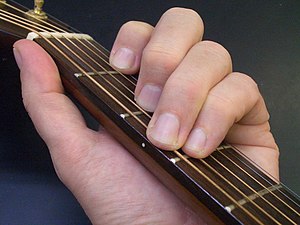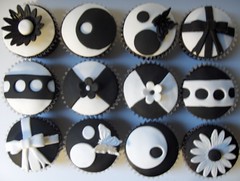I was recently contacted by a songwriter who had himself contacted an online Nashville-based company after he saw an ad for them on a music website. When I checked it out, I saw that this company’s website was pretty straight-forward: “We find songs for…” and then it proceeded to list a whole bunch of big name country artists. So they were either a song publisher or song plugging company. Below the long list of artists, there were three buttons. The first button was supposed to be a FAQ, but the questions represented weren’t anything like “who we are and what we do”. No, instead they included questions like “Do my words need to be perfect when I send them to you?” , “How long should my song be?” and “Do I need to copyright my songs before I send them to you?”. All of their answers to these questions raised red flags for me.
The first question was “Do my words need to be perfect when I send them to you?”…any legitimate song publisher or songplugger WANTS A “PERFECT” SONG to pitch. They don’t want to listen through a bunch of mediocre songs…which is why it is so hard to get that publishing deal in the first place. Most song publishers listen to about the first :10 or :15 seconds of a song before they decide to turn it off or not. But what did this company’s website say? “No. All songs start with a good idea and that’s all we need.” Right away, this should tell you that they are taking anything that gets sent their way. Why? I’ll get to that in a minute.
Second question: “How long should my song be?” Now, that’s a rather odd question to put in a FAQ, but nevertheless, they have an answer for that one too! Their answer is: “A commercial song…usually has about 24 lines, but may vary.” This reminds me of an old scam artist/self-proclaimed “hit” writer that I came across a number of years ago on the web. He actually had it calculated down to the number of syllables in a line! If you have this many syllables, your song could be a hit! But all you have to do is check out a bunch of hit songs from anywhere, anytime, to see that numbers of lines and syllables is NOT the most important aspect of being a “hit”, nor is a certain number of them a prerequisite. Another red flag.
Third question: “Do I need to copyright my songs before I send them to you?” Their answer? No. That was the biggest red flag for me. Now, practically speaking, a lot of pro writers do not copyright their songs until they get picked up by an artist. But they know who they’re dealing with, and they already have a name for themselves. They are not you, the first time songwriter trying to get your songs to a publisher. Technically, a copyright ‘exists’ when you finish writing a song. You always put the copyright symbol on anything you send out. And if you are really hot on that song, you register a legal copyright first before sending it anywhere. No question.
Okay, let’s get back to that Nashville company website. Remember I told you that I’d explain why they would take anything that is sent to them? Well, this will tell you. The next button says “Read what songwriters are saying about [us].” I read all of the quotes and every one of them was about the recording of the songwriter’s song. For example: “Thank you for making a great recording of my song. You are special people who make a difference.” None of the quotes had anything to do with getting a song placed, pitching it to artists or getting on the radio, or anything else. All they want is for you to pay them money to record your song.
When the songwriter who contacted me sent me a copy of the contract, my suspicions were confirmed. This was all about paying money to get a song recorded. And not only that, but you get a bonus of $30,000 when you get a number 1 hit! Wow, so now, let me see…somehow getting a recording of your song done by them, which you pay them for, could be a number 1 hit?? How might that happen? That’s the other ‘service’ they provide…they’ll send your song to a bunch of radio stations on a compilation CD! That’s how it will become a hit. It’s just that you have to pay for being on the compilation CD too. Oh well, chump change compared to that $30,000 you’re going to make, right? They’re going to send it out to hundreds of radio stations! But here’s the twist: most radio stations pay absolutely no attention to these compilation CDs. The only CDs they will listen to come from legitimate and big name record labels. I know…I worked at a radio station. The CD your song is on gets filed under “G” for garbage.
The ‘contract’ that was sent to this songwriter was, in fact, a glorified invoice. Please pay us $500+ dollars. Oh, and your song could be a hit.
Don’t feel stupid if this has happened to you or if it does in the future. It has happened to many, many songwriters over the years. Heck, I still get an annual post card from a “big time” producer, gushing about my song (and he always gets the title wrong) and how he can make it a big hit for me down in Nashville. I’ve received a post card every year for about ten years, and that’s not exaggerating. I probably sent the song out there to a few places years ago and that’s how he got my address. I laugh, but then I wonder how many others he does this to every year, and how many of them fall for it just because they really believe in their songs and want it to be true.
These guys are nothing but scam artists pulling at your heartstrings.
If you have any questions about any publishers or song pluggers, send them to me. I am not a lawyer so if you get a big, long contract with a bunch of legalize in it, I won’t be able to decipher it much more than you will. However, if it’s anything like the contract this songwriter sent me to look at, I can tell you right away if it’s a scam or not!
In the meantime, be careful out there.
IJ
PS…I occasionally receive emails from so-called song pluggers or people who want to collaborate and who claim they have written hits for certain artists, etc. I usually research them first to see if they are legitimate by simply searching for their names in the ASCAP and BMI databases (or check with the PRO from whatever country they reside in). If I can’t find their names registered anywhere, I’ll simply reply to their email and ask them what name they register their songs under. If they are legitimate, they’ll tell you, if they don’t answer back, you’ve learned that either they are scammers or that they are not willing to share their info, which makes them highly suspicious. As I always say, arm yourself with knowledge! ~ IJ



![Reblog this post [with Zemanta]](http://img.zemanta.com/reblog_e.png?x-id=edee11b3-75fb-43cc-9534-0a24541f0307)



![Reblog this post [with Zemanta]](http://img.zemanta.com/reblog_e.png?x-id=f9650140-e2de-4b95-b3eb-7b6b19a3cfea)